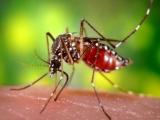A final report on the persistence of Zika virus in bodily fluids from people in Puerto Rico today in the New England Journal of Medicine highlighting results from the ZIKV Persistence (ZiPer) cohort study suggests that, for the vast majority of men, Zika RNA is cleared from semen within 4 months.
The study was based on 295 people in Puerto Rico infected with Zika beginning in May 2016. Only patients with symptomatic Zika, confirmed by reverse transcription polymerase chain reaction (RT-PCR) were included. Researchers collected samples of serum, urine, saliva, semen, and vaginal secretions weekly for the first month and at 2, 4, and 6 months after diagnosis.
The mean age of the participants was 36 years; 51% were female, including 9 who were pregnant. Investigators from the Centers for Disease Control and Prevention (CDC) oversaw the research, along with clinicians in Ponce, Guayama, and San Juan, Puerto Rico.
"This study is unique in that most (92%) of participants were enrolled within 1 week after symptoms of Zika began, providing a clearer understanding of virus detection early in the course of infection," said Gabriela Paz-Bailey, MD, PhD, of the CDC Dengue Branch. "It is also the largest study to examine multiple body fluids for the presence of Zika virus in an ongoing fashion."
"We published preliminary results in February of 2017 among 150 men and women. Now the study is complete and includes 295 persons and additional culture results for blood and semen. Most of the findings remain consistent, although the duration of detection of virus particles is 1-2 days longer for blood, urine, and semen," Paz-Bailey, the study's lead author, said in an email.
According to the researchers, the median and 95th percentile for the time until the loss of Zika RNA detection were 15 days (95% confidence interval [CI], 14 to 17) and 41 days (95% CI, 37 to 44), respectively, in serum; 11 days (95% CI, 9 to 12) and 34 days (95% CI, 30 to 38) in urine; and 42 days (95% CI, 35 to 50) and 120 days (95% CI, 100 to 139) in semen. Less than 5% of participants had detectable Zika RNA in saliva or vaginal secretions.
Data support new CDC sex guidelines
Compared with preliminary findings, the median time of RNA clearance in semen rose from 34 to 42 days, and for 95th percentile it climbed from 81 to 120 days.
The study authors suggest the new findings align with the CDC's modified sexual activity recommendations concerning Zika. In August, the CDC said couples in which the man was exposed to Zika should use condoms or not have sex for at least 3 months after possible Zika exposure (the agency had previously recommended 6 months). Women with possible Zika virus exposure should wait at least 2 months from the beginning of symptoms or most recent exposure before trying to become pregnant.
"Anyone concerned about getting or passing Zika through sex should use condoms every time they have sex or not have sex for at least 3 months after symptom onset to allow Zika virus to clear from semen," Paz-Bailey said.
The authors said their findings differ from previous studies on Zika testing, with prior studies showing more frequent detection of Zika RNA in urine than in serum, and frequent saliva detection.
In general, Paz-Bailey said the study reinforces the main recommendations for Zike prevention.
"Because Zika infection during pregnancy can cause severe birth defects, pregnant women should not travel to areas with Zika transmission risk," she said. "All travelers should strictly follow steps to prevent mosquito bites and prevent sexual transmission during and after the trip."
See also:
Sep 27 N Engl J Med study
Feb 15, 2017, CIDRAP News scan on preliminary results





















